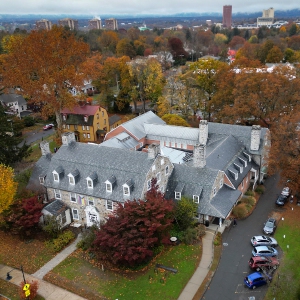Floodwaters claim Hadley CSA farm’s harvest
| Published: 07-19-2023 2:06 PM |
HADLEY — Eight acres of tomatoes, carrots, potatoes, leeks, beets, peppers and garlic, all about ready to harvest at the height of the growing season for Stone Soup Farm’s Community Supported Agriculture summer shares, will soon be plowed under after being inundated by water from the Connecticut River last week.
The surge from the river, likely contaminated with sewage and chemicals, as well as debris and trash, covered many of the crops growing at the farm’s River Drive field on July 11.
“This was like a big lake,” said Stone Soup owner Dave DiLorenzo last Friday afternoon, looking at a site that, just a few days ago, had bright green, healthy plants, all with a certain vibrancy.
“Now everything is dirty, muddy, gross and brown, like a bathtub ring to everything,” DiLorenzo said. “It’s very ugly.”
Thousands of pounds of various vegetables and 30,000 heads of garlic were destroyed, he said, amounting to about three-quarters of the seasonal crops.
“A lot of nice stuff is contaminated,” DiLorenzo said. “Over $100,000 worth of vegetables, just in this field, were lost.”
One high spot wasn’t affected, and the cucumbers and carrots there are salvageable. Another part of the field is raised much higher and the crops there also were unaffected.
Stone Soup also grows about 10% of its crops at its home base at 81 Rocky Hill Road, where it has a barn, a workroom and a cooler, and a pick-your-own garden. That is also where people pick up their CSAs, though since 2007, the farm has also been delivering its organic farm shares to Cambridge, Boston and Jamaica Plain.
Article continues after...
Yesterday's Most Read Articles
 ‘Home away from home’: North Amherst Library officially dedicated, as anonymous donor of $1.7M revealed
‘Home away from home’: North Amherst Library officially dedicated, as anonymous donor of $1.7M revealed
 Super defers Amherst middle school principal pick to successor; one finalist says decision is retaliation for lawsuit
Super defers Amherst middle school principal pick to successor; one finalist says decision is retaliation for lawsuit
 Granby Bow and Gun Club says stray bullets that hit homes in Belchertown did not come from its range
Granby Bow and Gun Club says stray bullets that hit homes in Belchertown did not come from its range
 Connecticut man gets 8 years in Hadley shooting
Connecticut man gets 8 years in Hadley shooting
 Design Review Board in Amherst backs 5-story apartment project connected to old Hastings building
Design Review Board in Amherst backs 5-story apartment project connected to old Hastings building
 Political newcomer defeats Shores Ness for Deerfield Selectboard seat
Political newcomer defeats Shores Ness for Deerfield Selectboard seat
The main field, since 2012, has been rented from the Porter Phelps Huntington Museum, sitting next to 2½ acres farmed by the New Community Farm Cooperative, which is tended by about 20 families of refugees from Somalia. Like Stone Soup, their crops were underwater this week, though the sweet corn could be salvageable, said Mumat Aweys, who was examining the fields on behalf of the families.
DiLorenzo said most of the water that spilled into the field appeared to come from the south side of the property, where standing water was still visible, though some also overtopped the riverbank. “It never came up over the side like that before,” DiLorenzo said.
The damage came in the midst of what has been a fantastic growing season and just as tomatoes and peppers were about ready to be harvested, he said.
“We were doing great before this flood,” DiLorenzo said. “We were having a really abundant season.”
Though there has been notable damage to many farms this week, DiLorenzo said the vast majority of farmland in the region has not been affected.
That is helpful, he said, as it means other organic farms have a surplus and some have offered to allow DiLorenzo and his four-member summer team to do the harvesting needed to complete their weekly orders, filling the shares with kale, carrots, scallions, squash and cucumbers.
“Other farms are being generous,” DiLorenzo said.
He has also gotten supportive and understanding emails from many.
Beyond the expense of the losses, there is also a feeling of work gone to waste.
“Everything here embodies thousands of hours of labor and so many resources,” DiLorenzo said. “The flood came right in the middle of when we were ready to harvest.”
DiLorenzo will be putting together a GoFundMe page. He and his team will also be back, using the garlic for seed in the fall and tilling a portion of the land, turning over the soil where carrots have been growing, and planting quickly growing crops such as lettuce, carrots and radishes. Other drier areas will also be replanted right away.
“Hopefully in two months we’ll have our own stuff again,” DiLorenzo said.

 Sharing a few notes: High schoolers coaching younger string players one on one
Sharing a few notes: High schoolers coaching younger string players one on one Reyes takes helm of UMass flagship amid pro-Palestinian protests
Reyes takes helm of UMass flagship amid pro-Palestinian protests Sole over-budget bid could doom Jones Library expansion project
Sole over-budget bid could doom Jones Library expansion project Amherst poised to hire police department veteran as new chief
Amherst poised to hire police department veteran as new chief 